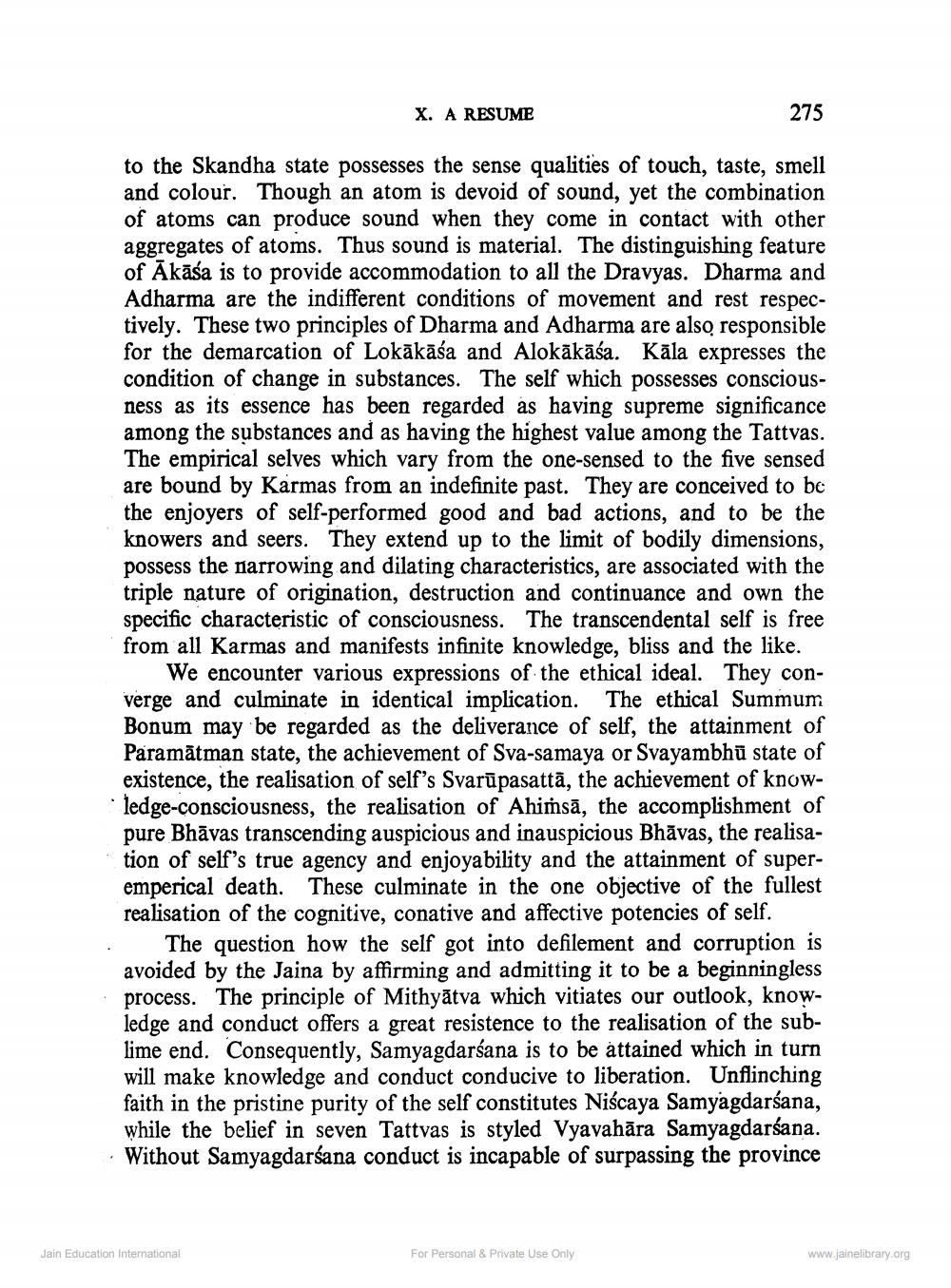________________
X. A RESUME
275
to the Skandha state possesses the sense qualities of touch, taste, smell and colour. Though an atom is devoid of sound, yet the combination of atoms can produce sound when they come in contact with other aggregates of atoms. Thus sound is material. The distinguishing feature of Ākāśa is to provide accommodation to all the Dravyas. Dharma and Adharma are the indifferent conditions of movement and rest respectively. These two principles of Dharma and Adharma are also responsible for the demarcation of Lokākāśa and Alokākāśa. Kāla expresses the condition of change in substances. The self which possesses consciousness as its essence has been regarded as having supreme significance among the substances and as having the highest value among the Tattvas. The empirical selves which vary from the one-sensed to the five sensed are bound by Karmas from an indefinite past. They are conceived to be the enjoyers of self-performed good and bad actions, and to be the knowers and seers. They extend up to the limit of bodily dimensions, possess the narrowing and dilating characteristics, are associated with the triple nature of origination, destruction and continuance and own the specific characteristic of consciousness. The transcendental self is free from all Karmas and manifests infinite knowledge, bliss and the like.
We encounter various expressions of the ethical ideal. They converge and culminate in identical implication. The ethical Summum Bonum may be regarded as the deliverance of self, the attainment of Paramātman state, the achievement of Sva-samaya or Svayambhū state of
existence, the realisation of self's Svarūpasattā, the achievement of know·ledge-consciousness, the realisation of Ahimsā, the accomplishment of
pure Bhāvas transcending auspicious and inauspicious Bhāvas, the realisation of self's true agency and enjoyability and the attainment of super emperical death. These culminate in the one objective of the fullest realisation of the cognitive, conative and affective potencies of self.
The question how the self got into defilement and corruption is avoided by the Jaina by affirming and admitting it to be a beginningless process. The principle of Mithyātva which vitiates our outlook, knowledge and conduct offers a great resistence to the realisation of the sublime end. Consequently, Samyagdarśana is to be attained which in turn will make knowledge and conduct conducive to liberation. Unflinching faith in the pristine purity of the self constitutes Niscaya Samyagdarśana,
while the belief in seven Tattvas is styled Vyavahāra Samyagdarśana. · Without Samyagdarśana conduct is incapable of surpassing the province
Jain Education International
For Personal & Private Use Only
www.jainelibrary.org




